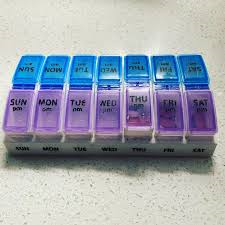How to Talk About Epilepsy with Friends and Family

Living with epilepsy can be challenging, not only because of the condition itself but also because of the misunderstandings that often surround it. Talking openly about epilepsy with friends and family can help build a network of support, reduce fear and stigma, and empower you to feel more understood and connected. While it can be a sensitive topic to bring up, having honest conversations is a critical part of managing your epilepsy and strengthening your relationships.
Why Talking About Epilepsy Matters
Many people are unfamiliar with epilepsy or may hold outdated or inaccurate beliefs about what it means. If you don’t talk about your condition, those around you may make assumptions or feel uncertain about how to support you. By sharing your experiences and educating others, you create an environment of understanding and compassion.
Open communication can also:
- Improve emotional well-being by reducing feelings of isolation
- Help loved ones recognize and respond appropriately during a seizure
- Encourage shared responsibility in managing safety and stress
- Foster acceptance in social settings, reducing anxiety about “what if” scenarios
Preparing for the Conversation
Before talking to friends or family, take some time to reflect on what you want to share and how much you feel comfortable disclosing. You’re not obligated to share every detail, but providing basic information can be incredibly helpful for others. Consider the following:
- What type of seizures you experience
- How someone can help if you have a seizure
- Any triggers you’re aware of and how to avoid them
- How epilepsy affects your daily life, including emotions and routines
You may also want to write down key points or practice the conversation with a trusted person beforehand.
Tips for Talking with Friends and Family
Here are a few expert-recommended strategies to make the conversation more effective and supportive:
- Choose the Right Time and Setting: Find a calm, private environment where everyone can focus and feel comfortable asking questions.
- Use Clear, Simple Language: Avoid medical jargon. Describe epilepsy in relatable terms, such as “a condition that affects the brain and causes seizures,” and explain how it affects you personally.
- Be Honest but Reassuring: Let them know what to expect, but also emphasize what you’re doing to manage your health. Reassure them that many people with epilepsy live full, active lives.
- Answer Questions Openly: Encourage questions, even if they seem basic or uninformed. Curiosity can lead to greater understanding.
- Provide Resources: Offer printed materials, trusted websites, or videos if your friends or family want to learn more. Direct them to reputable sources like the Epilepsy Foundation or your neurologist’s recommendations.
- Set Boundaries if Needed: Not everyone may react supportively at first. That’s okay. You have the right to control how much you share and who you share it with. Focus on building a support network with those who respect and understand your journey.
Helping Loved Ones Support You
Once your friends and family are informed, they can play an active role in your support system. Encourage them to:
- Learn seizure first aid
- Check in with you emotionally
- Accompany you to appointments if you’re comfortableAny triggers you’re aware of and how to avoid them
- Help create a safe environment at home or during activities
Their involvement can lighten your emotional load and foster a deeper sense of connection.
Talking about epilepsy with friends and family may feel intimidating at first, but it can be one of the most empowering steps you take. Open communication builds trust, strengthens relationships, and helps reduce the stigma that too often surrounds epilepsy. Remember: you don’t have to navigate epilepsy alone. By educating those closest to you, you create a community of support where you can feel safe, understood, and empowered.
Text generated by ChatGPT, May 28, 2025, OpenAI, https://chat.openai.com/chat. ChatGPT